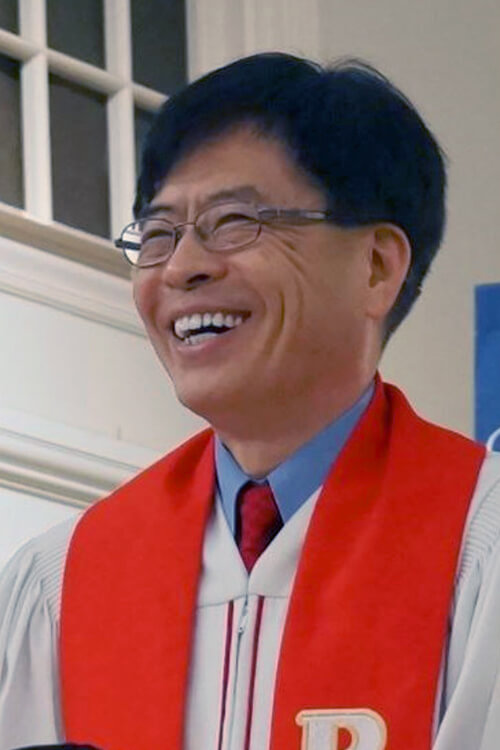Key points:
- The dialogue and mutual understanding of different cultures — Confucian and White Anglo Protestantism — will strengthen and help carry out effective cross-racial and cross-cultural ministries.
- The notion of filial piety (family reverence) is one of the core ethical, political, philosophical, spiritual and religious teachings of Confucianism.
- Newly converted Christians believed in God, Jesus Christ and the Holy Spirit without conflicts with Confucian teachings, and lived Confucian ethical norms.

Photo courtesy of the author.
Commentaries
An anonymous theologian said that “most Korean Christians are Confucians dressed in Christian robes.” This is also true for most East Asian Christians in Confucian-influenced societies in China, Japan, Hong Kong and Taiwan.
This article aims to support pastors and congregations in cross-racial and cross-cultural appointments. The dialogue and mutual understanding of different cultures — Confucian and White Anglo Protestantism — will strengthen and help carry out effective cross-racial and cross-cultural ministries.
Most Koreans have been strongly influenced and shaped by the Confucian teachings that emphasize human relationships: one’s relationship with oneself, with family, friends and fellow human beings. The notion of filial piety (family reverence) is one of the core ethical, political, philosophical, spiritual and religious teachings of Confucianism.
There are five Constant Virtues in Confucianism: Benevolence or Affection, Righteousness, Propriety, Wisdom and Trustworthiness.
Benevolence means not being able to endure seeing others suffer, loving others and aiding all living things. Righteousness means doing what is proper. Propriety means to enact — that is, to realize the way and perfect the refined. Wisdom means knowledge. Trustworthiness means sincerity.
Filial piety is an example of Benevolence or Affection. Unfortunately, neither filial nor piety are modern terms held in esteem in the Western and Eastern world. This adds to the difficulty in understanding this virtue so highly appraised by the Confucians.
In Confucianism, mutual love between parents and children is the beginning of learning how to love and how to be humane. This kind of filial piety should not be confused with mere dutifulness and one-sided obedience to one’s parents. Rather, it constitutes an integral approach to what it means to be human.
Maturity in filial piety is the model for loving a spouse, loving siblings, loving neighbors in the community and also loving children. Pursuing this ideal of filial piety as the nest for learning humanity has pushed Confucian-influenced East Asian societies to emphasize close family connections throughout extended families and to keep families together.
Another key notion of Confucianism is that of self in the community as the foundation of Confucian spirituality.
The self is an open, dynamic and transformative process — not an isolated entity from the world. Confucian transformation does not take the form of searching exclusively for one’s own inner spirituality. Rather, in the Confucian perspective, authentic self-transformation involves tapping spiritual resources from the cumulative symbolic traditions, the sympathetic resonance of society, the vital energy of nature and the creative power of Heaven.
The distinctive feature of Confucian spirituality is the view that the human community is an integral part of the human quest for self-realization. Human beings are embedded in this world and our spiritual journey should begin here and now.
Our feelings, thoughts and ideas are not necessarily our private property. While they are intensely personal, they need not be private. They are often better thought of as shareable public interchanges — first with members of our family, our neighborhood community and beyond. This broadening process is central to the Confucian project of self-cultivation.
We should acknowledge that Confucian ethics in general have been notorious for their history of oppression of women. It is also a fact that under the name of Confucianism, there was oppression of women during the Chosun Dynasty in Korea. At that time, filial piety meant one-sided obedience to parents and was male-oriented and paternalistic.
Subscribe to our
e-newsletter
The Chosun Dynasty existed for 505 years, from 1392 to 1897. During that period, Confucianism was the official religion, philosophy, ethical teachings and norms that governed society individually and collectively.
When Christian Catholic missions began in 1774 and Protestants arrived in 1884, Koreans were Confucians. Newly converted Christians believed in God, Jesus Christ and the Holy Spirit without conflicts with Confucian teachings, and lived Confucian ethical norms. They were Confucian Christians. Most Christians in Korea and worldwide inherited this ethical, philosophical, spiritual and religious DNA and have lived as Confucian Christians.
I am a third-generation Confucian Christian. I was born and grew up in a pluralistic society of multifaith or multireligion in Korea: Shamanism, Buddhism, Taoism, Confucianism, Christianity, Islam, etc. My grandparents were the first generation of Confucians who converted to Christianity. However, like most Korean Christians, I had a Confucian-Christian family education at home in Korea. For example, I learned the most important ethical, philosophical, spiritual and religious teaching — filial piety — at home in Korea.
I have discussed four key notions of Confucianism: filial piety, self in the community as the foundation of Confucian spirituality, criticism of Confucian ethics and the definition of the term Confucian Christian. The dialogue and conversation about these concepts can contribute new insights to Korean and Asian pastors and congregations in cross-racial and cross-cultural appointments.
This conversation can help pastors and congregations understand different cultures and the collaborative work to carry out ministry and mission to the world.
Oh is the pastor of Old Town United Methodist Church in Old Town, Maine, and the author of “A Korean Theology of Human Nature” (University Press of America).
News media contact: Tim Tanton or Joey Butler at (615) 742-5470 or newsdesk@umcom.org. To read more United Methodist news, subscribe to the free Daily or Weekly Digests.



